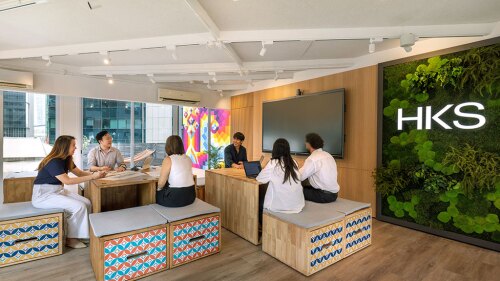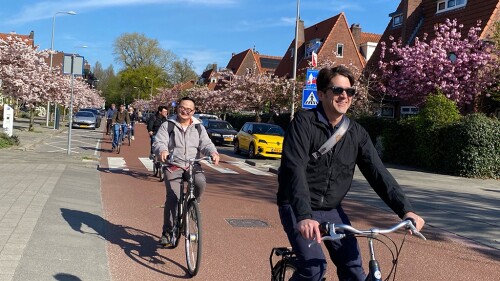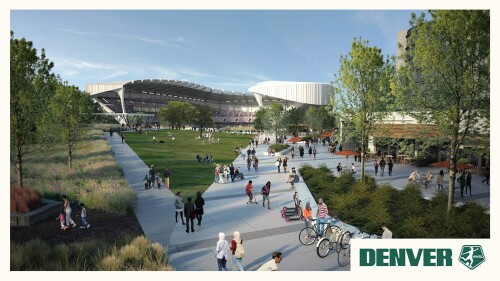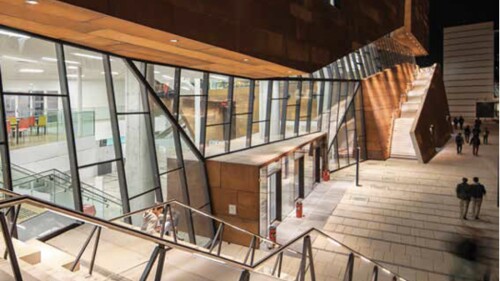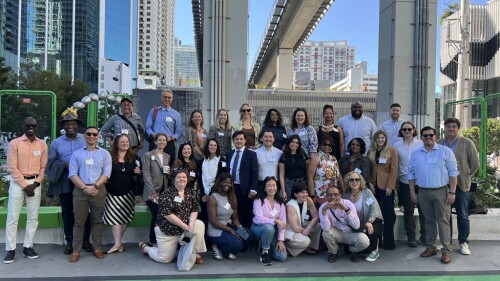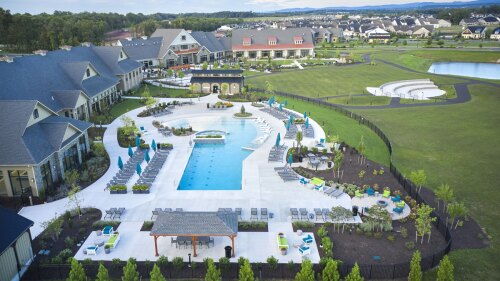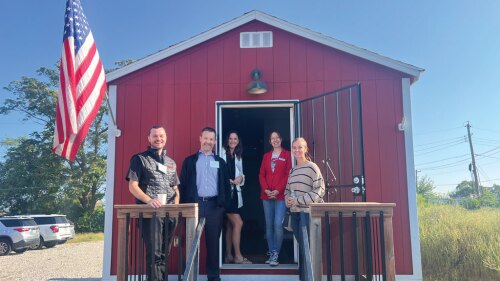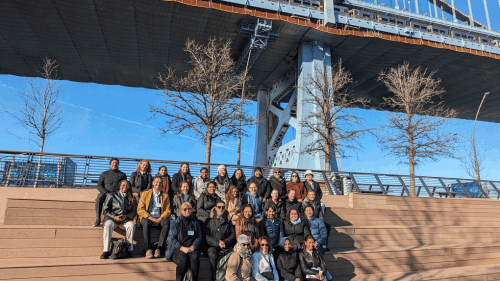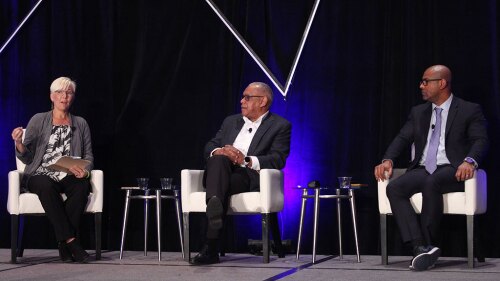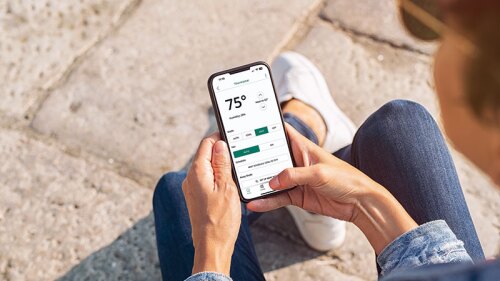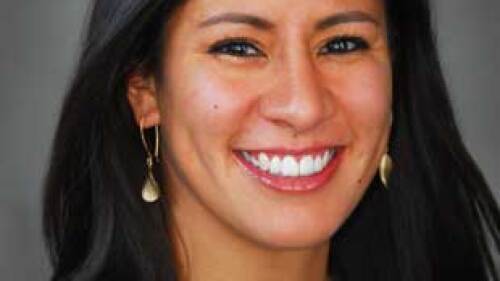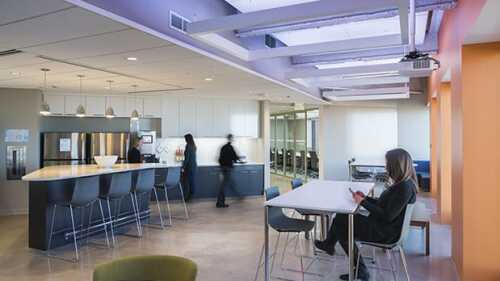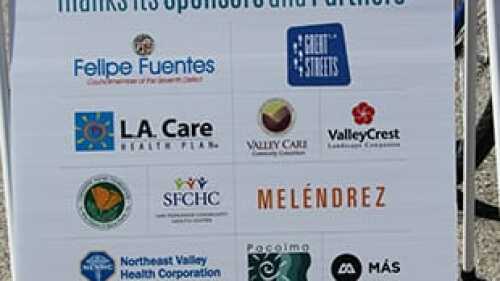Healthy Places
Uncover expert guidance on building healthier cities and improving quality of life through people-first planning and design.
ULI spoke with Craig Lewis, placemaking practice group manager at Arcadis, about how prioritizing cognitive engagement in urban design can help create healthier, happier cities that promote connection and community.
When I took office as mayor of Oklahoma City in 2004, my goals were similar to any other mayor’s: to improve our economy, raise our national profile, and protect our citizens. We had an intersection with safety concerns, and our planning department was pushing the idea to me and the City Council to install a traffic circle. At the time, traffic circles were new to this generation of Oklahoma City drivers, but we soon found out that they were cost-effective and most certainly safer.
London is one of many cities rethinking its car-first orientation and embracing a more holistic vision of urban life rooted in social connection. Car-free and car-light streets are most successful when they function as social infrastructure that supports belonging, well-being, and public life. In other words, infrastructure matters, but intentional placemaking determines results.
A growing body of research indicates that physical space profoundly affects our brain health. The capacity of our buildings and public spaces to be regenerative in that regard remains largely untapped, however. The key resources for developing brain capital are brain skills—cognitive processes such as memory, attention, and critical thinking; and brain health—the overall functioning of an individual’s brain throughout that person’s life.
Top 10 takeaways from ULI’s Health Leaders Network Alumni Convening in the Netherlands
The Johns Hopkins Institute for Planetary Health is poised to host the inaugural event of the 2025 Planetary Health Cities Symposium in Washington, D.C., on June 16. This event aims to address the urgent challenges posed by the degradation of Earth’s natural systems and the impact on human health and well-being. (
In an exciting development for women’s sports in Denver, Colorado, the city council recently approved a $70 million infrastructure grant to purchase and ready a site for construction of a new stadium dedicated to a new National Women’s Soccer League team. This initiative marks a significant milestone not only for women’s soccer but also for the community at large, as it aims to empower women’s sports and create a vibrant hub for activities revolving around them.
The Lewis Center for Sustainability Forum commemorated the 10th anniversary of its Building Healthy Places Toolkit, a pivotal resource designed to integrate health and wellness into real estate development. The forum—held on the first day of ULI’s 2025 Spring Meeting, in Denver, Colorado—brought together industry leaders, each of whom highlighted the toolkit’s significant impact and the evolving focus on health within the built environment.
Ten years ago, ULI released the Building Healthy Places Toolkit: Strategies for Enhancing Health in the Built Environment report. The Toolkit, developed by ULI in partnership with the Center for Active Design, offered 21 practical and tactical evidence-based strategies and recommendations that real estate leaders can employ to improve the health outcomes of residents and building users.
A city renowned for its vibrant culture and sweeping coastal skyscrapers, Miami set the stage for this year’s ULI Health Leaders Network Introductory Forum. Spanning the course of three days, Cohort 8 learned from local practitioners and explored the various ways in which the city marries real estate and land use with health and social equity. The Health Leaders toured historical and contemporary neighborhoods, provoking thoughtful discussion on how Miami development compared to their own local contexts.
Home to almost 700,000 people, Vancouver is known for its gleaming residential towers, striking natural beauty, and dense development. However, like many progressive urban centers on the west coast, it has also struggled with significant issues that threaten the quality of life for its residents, including persistent homelessness and lack of affordability.
Amblebrook, an innovative retirement community in the historic setting of Gettysburg, Pennsylvania, was specifically designed to remedy this social disease. It shatters the mold of the conventional 55-plus community.
The Veterans Community Project serves any veteran who took the oath to defend the Constitution, regardless of discharge status, length of service, or branch of service. The program strikes an effective balance between community and individual dignity, employing a robust combination of housing and services. As a result, the program has a high success rate of 85 percent in transitioning unhoused veterans to permanent housing.
Since 2017, the ULI Health Leaders Network has served as a platform for cross-sector professionals looking to grow their leadership skills, make meaningful connections, and drive progress in health and social equity. Welcoming thirty new members to the Network, Cohort 7 joins a global community of practice of over 200 professionals. Spanning 24 cities and 6 different countries, the new cohort represents a diverse range of real estate, land use, design, policy, and public health professionals. To learn more about the individual Cohort 7 members, explore their profiles and biographies here.
A general session at the ULI Carolinas Meeting, moderated by Risa Wilkerson of Healthy Places by Design, showcased how the convergence of the built environment, health and equity forms a complex web that impacts every facet of human life. Dr. Malo Andrew Hutson, a distinguished academic at the University of Virginia’s School of Architecture, provided a deep dive into how residential segregation and the built environment contribute to health disparities.
Innovative technology platforms already are helping many owners operate apartment buildings more efficiently and improve services for tenants. But experts say that is just the start of a revolution that could transform the multifamily segment.
The Los Angeles Better Buildings Challenge in June presented sustainability prizes to the “Best Buildings” in Los Angeles at its annual Innovation Awards. Hudson Pacific Properties, Barings, and CommonWealth Partners, which are both active members of ULI Los Angeles and Greenprint, were among the six projects honored.
The COVID-19 pandemic has challenged us all to rethink everything we thought we knew about productivity and the workplace. As we have learned, the answers are far from straightforward, but they are nevertheless emerging. During a 2021 ULI Virtual Spring Meeting session, real estate experts explored how employees’ preferences and performance are leading to a suite of workplaces—a “multiverse of work” in which homes, corporate offices, and various other locations will combine to enable a high-performing workforce.
Christina Contreras, the ULI/Martin Bucksbaum Senior Visiting Fellow, discusses how she and ULI staff are researching how privately owned and managed “third places” can better contribute to individual and community health and well-being.
ULI Member–Only Content:Experts in real estate development for the age-qualified and service-enriched housing sectors discuss changing consumer preferences in senior living and other trends affecting operators.
The ways in which people use and interact in commercial buildings—particularly office spaces—will likely be changed significantly due to the COVID-19 crisis, with building and workplace health being a top concern, according to two healthy-building experts featured on a ULI webinar.
The global impact on human health and economic stability resulting from the COVID-19 outbreak is likely to quickly and dramatically elevate health and wellness as key factors influencing urban design and development as well as building management and operations, according to industry experts convened by ULI for a webinar on the impacts of the pandemic. The event was the first of a series of webinars being offered to explore how various aspects of the real estate industry are being affected by the virus and the industry’s response.
Communities around the world are racing to control the spread of the novel coronavirus and the disease that it causes, COVID-19. Increasingly, that means implementing aggressive social distancing measures, which can inhibit the spread of the virus and flatten the transmission curve. Given what is known about the virus so far, using building strategies to help slow the spread of the disease makes sense to help protect those who must work in an office or commercial setting and in multifamily settings.
As vehicle use and shopping habits change rapidly, densified parking areas can free up space for new uses that benefit the community.
One of the most difficult challenges for those seeking to adopt emerging technologies in commercial real estate is justifying the cost of implementing such measures. A recent ULI event in Boston highlighted the benefits of the evolving standards on health and wellness by five industry practitioners.
The growing popularity of building for health and wellness and the value derived from it are explored in a new ULI report, The Business Case for Healthy Buildings: Insights from Early Adopters. The report documents how real estate leaders worldwide are increasingly seeking to create environments that support healthy lifestyles in both workspaces and homes.
Demographic changes taking root today will affect society and the built environment for decades to come, according to Eike Wenzel, managing partner of the Institut für Trend- und Zukunftsforschung. He spoke about what cities can do to anticipate and adapt to these changes at the ULI Germany 2017 Urban Leader Summit in Frankfurt.
“Urban living is one of the key drivers of unsustainability,” said Ed Groak, chairman of the Worldwatch Institute, at the recent launch of the 2016 State of the World report, Can a City Be Sustainable?Despite the many challenges, the report indicates that the answer is yes.
After years of community conversations, planning, and stalled projects, the Los Angeles neighborhood of Pacoima is getting closer to moving forward on a wide range of initiatives to bring new life to Van Nuys Boulevard, the area’s main thoroughfare.
Bill Freeman sets out for his morning strolls early. The avid Boise, Idaho, walker strategically navigates the city’s north Vista Avenue corridor, avoiding certain difficult intersections.




